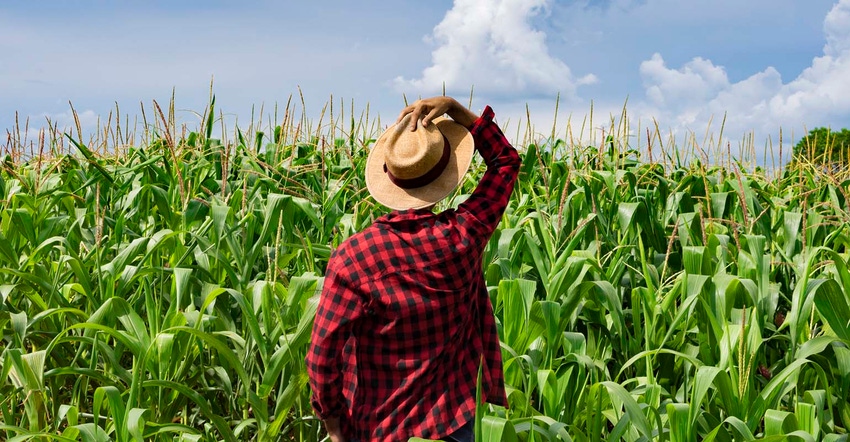A glance at Brazil’s agricultural future
What are the next moves for one of U.S. agriculture’s biggest competitors?

Clay Hamilton tends to describe U.S. and Brazil agriculture using a term often neglected by the industry when discussing the relationship between these two countries.
“In addition to being a competitor, Brazil is a tremendous partner with the U.S.,” he says. “We share a lot of the same concerns and challenges, and Brazil is a close research partner.”
Hamilton, a minister counselor with the USDA’s Office of Agricultural Affairs in Brasilia, Brazil, was one of several speakers on a panel at the 94th USDA Agricultural Outlook Forum to discuss that nation’s long-term agricultural outlook and how it might affect everything from U.S. exports to global markets.
From Past to Future
The panel, for a breakout session titled “Brazil: Now to 2040,” began by discussing the trends of Brazil agriculture over the past 20 years before speculating what the next 20 years might look like. What the country has accomplished in the past two decades prompts an important question, according to Hamilton.
“They increased production by over 400% over the past 20 years – what will they be able to do in the next 20?” he says. “The future of world agriculture is the U.S. and Brazil growing together, and we can’t do that unless we know where Brazil is headed and what drives Brazil.”
Some, including Roberto Rodrigues, Brazilian farmer and coordinator of an agribusiness center in São Paulo, are highly optimistic about the future, despite current infrastructure and transportation logistics challenges. Rodrigues points to the country’s safrinha corn crop as a prime example.
“They call it the little harvest – but it has grown much bigger,” he says. “Everyone is growing corn now. And some day, we maybe could grow more corn than the United States.”
That’s to say nothing of the country’s soybean crop, with production estimates for 2017/18 currently weighing in at a record 4.137 billion bushels. And while grain storage hasn’t matched the pace of production, Rodrigues does note it has “increased very fast.”
“Most of our capacity is for commercial unites and bigger producers,” he says. “They’re very modern, big units. The next challenge is to finish all the current logistics projects.”
Lackluster Logistics
Rodrigues points to Brazilian highway BR-163 as a primary example. Although a major thoroughfare through the country, around 60 kilometers (37 miles) are still unpaved.
Other infrastructure areas are also in need of improvement, notes Daniel Furlan Amaral, chief economist of Abiove in São Paulo. Brazil has relied too heavily on roadways, which is not the most ideal way to ship corn and soybeans, he says. Even so, many rail sections are underutilized or even abandoned in some cases, he says.
However, greater warehouse capacity, mandatory truck scheduling at ports and improvements to the ports themselves are all beginning to add up, Amaral says.
“Logistics are much more organized,” he says. “We no longer discuss what projects we need to do, but how we need to do them. It’s good news that we have a consensus about this.”
According to Luis Ribera, Extension economist with Texas A&M University, the uptick in private investment in Brazilian infrastructure – especially port improvement and expansion – is a strong signal of optimism for continued future growth.
“A lot of investment has been through private companies, not the government,” he says. “They see they’re going to make money – that’s why they’re making those investments. They’ve done their homework and know there will be positive returns.”
By Rodrigues’ estimates, Brazil should be able to increase its exports by 41% over the next decade but admits that output really depends a comprehensive strategy executed in both the public and private sectors. He explains what’s at stake for Brazil to emerge as one of the world’s largest food and feed providers.
“Food security is essential for the maintenance of universal peace,” he says. ‘Brazil is capable of being a very important player in that task.”
About the Author(s)
You May Also Like




